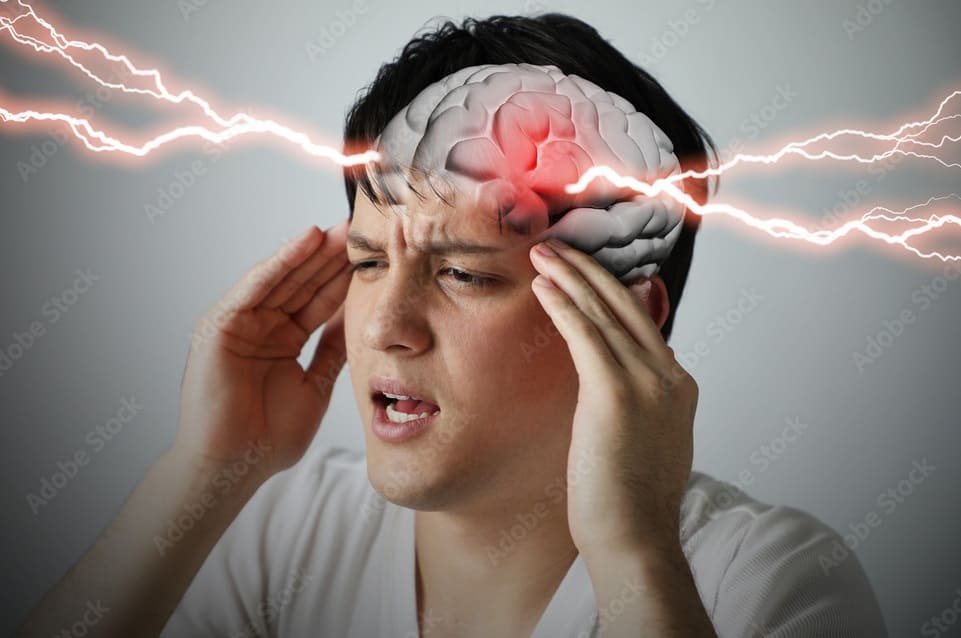When we think of paralysis, we often associate it with an inability to move parts of the body due to nerve or muscle damage. But can the brain itself get paralyzed? This question might sound unusual, but it’s an important one, especially when considering neurological conditions. Let’s dive into expert insights on this fascinating topic.
Understanding Brain Function and Paralysis
The brain is the command center of the body, controlling everything from movement to thoughts and emotions. Unlike muscles or limbs, the brain itself doesn’t experience paralysis in the traditional sense. However, damage or dysfunction in specific areas of the brain can lead to conditions that mimic paralysis or severely impair brain function.
Conditions That Affect Brain Function
While the brain doesn’t become “paralyzed” in the way limbs do, several medical conditions can significantly impair its ability to function properly:
- Stroke – A stroke occurs when blood flow to a part of the brain is blocked or reduced, depriving brain tissue of oxygen. This can result in paralysis on one side of the body, loss of speech, or cognitive impairment. The severity of a stroke depends on the extent and location of the brain damage. Immediate medical intervention can significantly improve outcomes.
- Brain Trauma – Severe head injuries can damage brain cells, leading to motor impairments, personality changes, cognitive difficulties, or even coma. Traumatic brain injuries (TBI) can range from mild concussions to severe damage that results in long-term disabilities.
- Locked-in Syndrome – This rare neurological disorder results from brainstem damage, leaving a person fully conscious but unable to move anything except for their eyes. It is usually caused by a stroke or traumatic injury affecting the pons, a critical part of the brainstem.
- Brain Tumors – Depending on their location, tumors can press on vital areas of the brain, causing loss of motor control, difficulty speaking, memory loss, or other neurological deficits. Treatment options include surgery, radiation, and chemotherapy, but the success rate depends on the type and stage of the tumor.
- Neurodegenerative Diseases – Conditions like ALS (Amyotrophic Lateral Sclerosis), Parkinson’s disease, or multiple sclerosis affect nerve communication, leading to progressive loss of muscle control and cognitive decline. While treatments can slow progression, these diseases currently have no cure.
- Cerebral Palsy – A condition resulting from abnormal brain development or damage before or after birth, leading to movement disorders. It can affect posture, muscle tone, and coordination, with symptoms varying in severity.
Can the Brain Be “Frozen” or Inactive?
In some cases, certain medical conditions can make it seem like the brain is in a paralyzed state:
- Coma – A deep state of unconsciousness where the brain remains inactive for an extended period. This can result from severe brain injury, oxygen deprivation, or drug overdose. Recovery depends on the cause and extent of damage.
- Catatonia – A psychiatric condition where a person appears motionless and unresponsive due to abnormal brain function. It is often associated with schizophrenia, mood disorders, or neurological conditions.
- Severe Epileptic Seizures – Some forms of epilepsy can lead to temporary loss of motor function, consciousness, or unresponsiveness. Status epilepticus, a prolonged seizure, can be life-threatening if not treated promptly.
Can the Brain Recover?
The brain has an incredible ability to adapt and recover, Neuroplasticity the process where the brain forms new connections to compensate for damage. Recovery can vary based on the severity of the condition, age, and rehabilitation efforts.
- Physical Therapy – Helps restore motor function and mobility for individuals affected by stroke or brain injuries.
- Speech Therapy – Beneficial for those who experience communication difficulties due to brain damage.
- Cognitive Therapy – Aims to improve memory, problem-solving skills, and overall cognitive function after brain trauma.
- Medication and Surgery – Some conditions, like epilepsy or brain tumors, may require medical or surgical interventions to restore function or prevent further damage.
Expert Advice for Brain Health
To keep your brain healthy and reduce the risk of conditions that can impair its function, experts recommend:
- Eating a balanced diet rich in brain-boosting nutrients, such as omega-3 fatty acids, antioxidants, and vitamins.
- Engaging in regular physical and mental exercises, including puzzles, reading, and problem-solving tasks.
- Managing stress through mindfulness, relaxation techniques, or professional counseling.
- Avoiding smoking, excessive alcohol consumption, and drug use, which can increase the risk of neurological diseases.
- Seeking prompt medical attention for symptoms like sudden numbness, confusion, severe headaches, or difficulty speaking and moving.
- Getting enough sleep to support cognitive function, memory retention, and overall brain health.
Final Thoughts
While the brain itself doesn’t experience paralysis in the way limbs do, various neurological conditions can lead to significant impairments that affect movement, cognitive function, and consciousness. Understanding these conditions and taking proactive steps for brain health can help minimize risks and promote long-term well-being.
If you or someone you know is experiencing signs of neurological distress, consulting a medical professional is crucial. Brain health is vital—take care of it!
Also Read:
